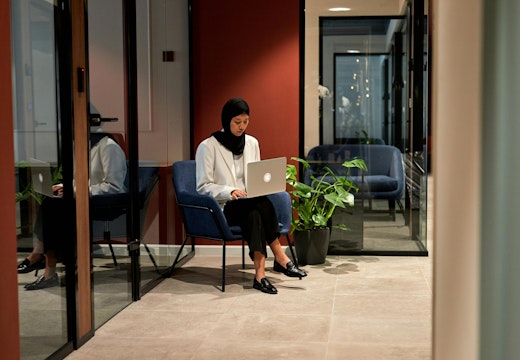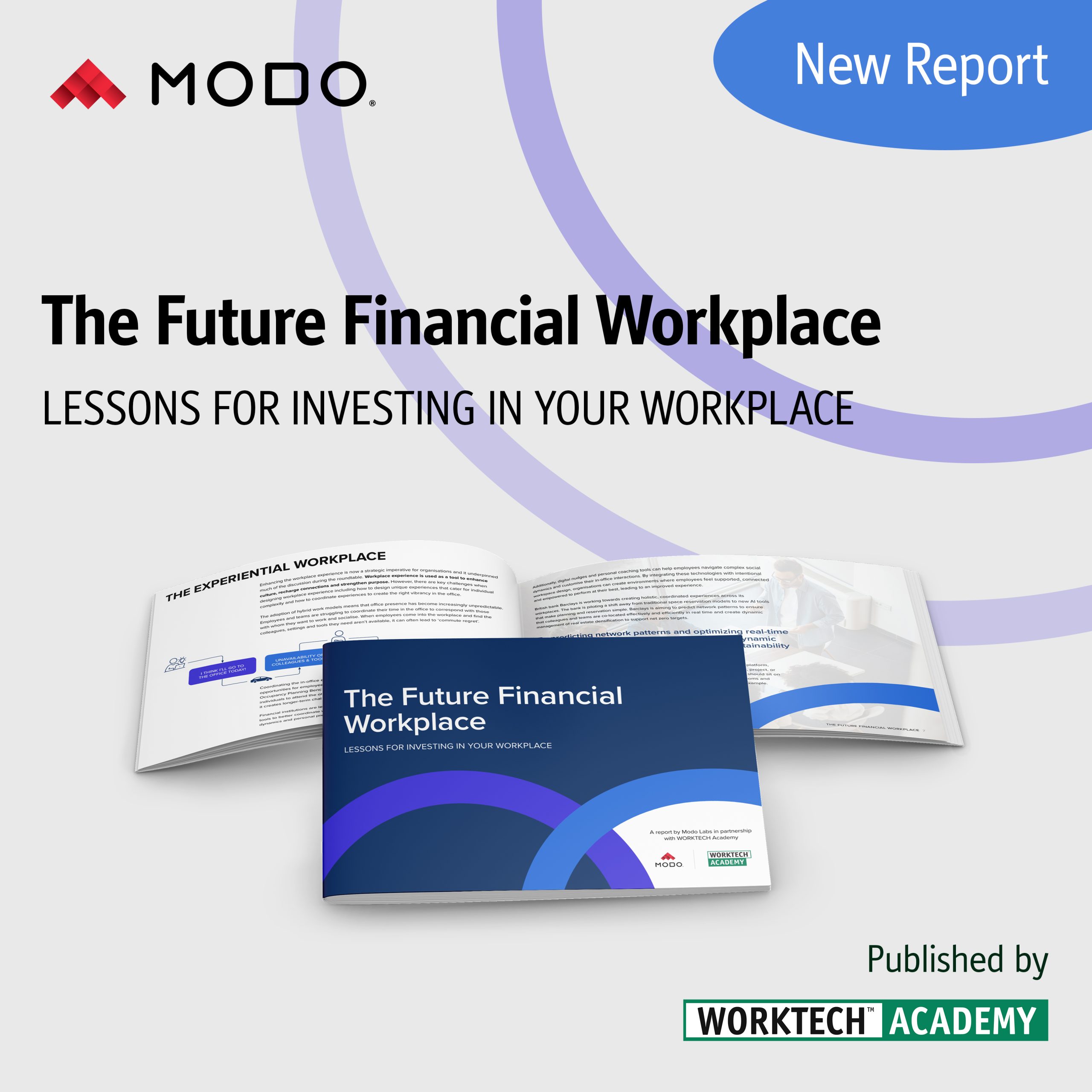Financial firms are setting the pace for the future workplace
As financial services firms reimagine their offices for a hybrid future, a new report presents an emerging workplace paradigm that blends purpose-led design with hospitality-infused experiences
The financial services sector is not often the first industry that comes to mind when thinking about workplace innovation. Yet behind the scenes, banks, insurers, and professional services firms are quietly redefining what the office means in a hybrid world.
A new report from Modo Labs and WORKTECH Academy, The Future Financial Workplace, explores how these firms are reshaping their workplace strategies and why their approaches are setting new standards for others to follow. The report identifies five key themes emerging from the financial workplace: purpose-led, experience-driven, community-focused, data integrated and cross-departmental collaboration.
Mapping the key shifts
At the centre of this shift is a growing recognition that the workplace must be purpose-led, not just space-led. Offices are no longer simply places where work happens, they are becoming intentional environments that reflect company values, foster employee wellbeing, and support a more agile, experience-centric way of working. From flexible neighbourhoods to wellness-driven amenities, financial organisations are designing workplaces that support focus, collaboration, and belonging.
The report draws insights from a roundtable of senior leaders across the financial and professional services sector. What emerges is a picture of an industry that is strategically aligning workplace design, technology, and culture to adapt to the changing needs of a hybrid workforce. For example, Barclays is piloting AI-powered coordination tools that help employees plan in-office time more effectively which reduces ‘commute regret’ and improves team co-location. Meanwhile, organisations like JP Morgan are embedding hospitality into their workplace DNA, offering premium amenities and services to elevate the in-office experience.
Key trends identified include the rise of neuroinclusive design, biophilic elements to support mental health, and the growing use of workplace apps to provide seamless, real-time services. Data also plays a foundational role by enabling everything from smarter space allocation to more personalised employee experiences. The report highlights how breaking down traditional silos between HR, IT, real estate and facilities is essential to delivering a truly integrated workplace ecosystem.
What’s particularly striking is that financial services, an industry known for risk management and regulatory compliance, is becoming a testing ground for bold new ways of working. With strong focus on performance, security, and employee retention, these firms are investing in workplaces that are not just fit for today’s needs but are also resilient and adaptable to future change.
As employee expectations evolve and hybrid models become the norm, the financial sector’s experience offers valuable lessons for every organisation. From coordinating in-person collaboration to creating spaces that support both wellbeing and productivity, the strategies outlined in the report present a compelling vision for what the office of the future can and should be.
Read the more in-depth analysis of the Modo Labs report in our Innovation Zone, which provides premium content for WORKTECH Academy members and partners.








